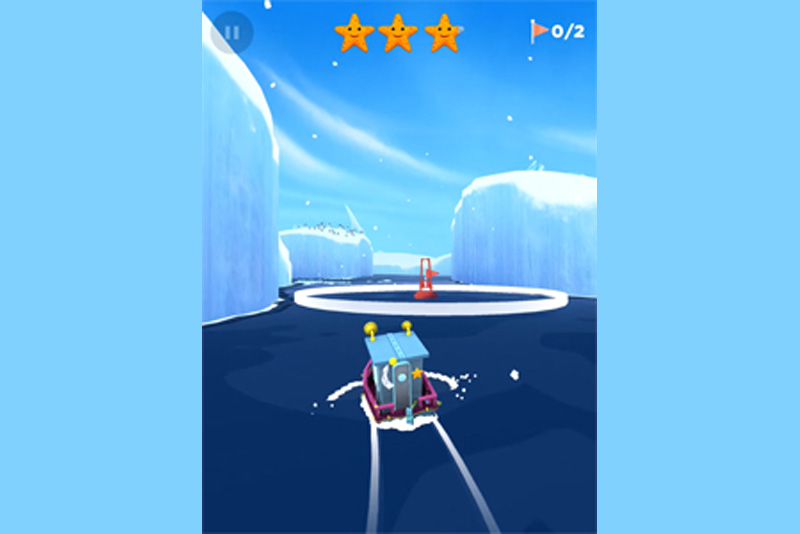Tactics Ogre Let Us Cling Together PSP

An updated version of an SNES classic, "Tactics Ogre: Let Us Cling Together" for the PlayStation Portable is a fantasy tactics game that offers a more political story than others of its kind.
"Tactics Ogre: Let us Cling Together" is a tactics-RPG set in the world of "Ogre Battle". The PSP incarnation actually an updated version of one of the original tactics-RPG of the same name. Compared to many other RPGs, "TO:LUCT" has a plot centered less around "good versus evil" and more about "law versus chaos" - its main story is essentially political in nature, and the player will be called upon to make decisions that are far less black and white than the usual RPG fare. The player character is a member of the Wallister clan, an ethnic group fighting against a larger kingdom that serves as their oppressors, yet the decisions made in the fight against this kingdom are not always righteous ones.
In terms of gameplay, TO:LUCT is similar to most other Tactics RPGs. The game space consists of square grids with varying types of terrain and of varying heights. The game is turn-based, with the order being determined by the speed of individual units. Anyone who's played other tactics-RPGs like Final Fantasy Tactics or Disgaea will understand the basic system almost immediately, though there are a few things that set TO:LUCT apart from other games of its genre.
The unit management system contains some somewhat unorthodox aspects. Soldiers are defined by their jobs (such as fighter, wizard, archer, knight, and so on). Jobs and soldiers both gain experience through completing battles, but these are different things. For example, if a knight gains enough experience to go up a level, any knight will level along with him (i.e. if anyone enters the Knight job, they will go to that level). However, individual units also gain skill points, and the skills they can buy and use are dependent on their job. As such, there is an incentive to keep units alive, but new units can be hired and have at least a passable level of competency. However, it also means that when you acquire new jobs, characters have to start over from Level 1 with it. As a system, I didn't think it was particularly good.
One element that differentiates TO:LUCT from its peers is the loyalty system. Your soldiers are not blindly following you - the choices you make will determine your alignment (lawful, neutral, or chaotic), but your soldiers have alignments of their own. If they don't like your choices, they may well leave. Similarly, enemy units in battles have loyalty ratings of their own - and with certain skills, disloyal soldiers can be recruited to your cause. This is a neat element that makes soldiers feel more "human" and less like AI characters, though it's still somewhat limited.
If there is one major problem that pervades TO:LUCT, it's the lack of things to do besides fight. In Final Fantasy Tactics, it was possible to send troops on different jobs or quests, hunt for materials, and so on - there were things to do besides "fight". In LUCT, the open map has very little to actually offer, and in essence just serves as short-term obstacles between you and the next story battle. While there's random battles and character customization, there just doesn't seem to be that much to actually do. This is obviously related to the original game's limitations, but in the context of this PSP remake, it feels kind of hollow.
Overall, though, "Tactics Ogre: Let Us Cling Together" is a solid game for tactics fans. It delivers solid content, an interesting story, and beautiful artwork (the character portraits alone were worth the time spent remaking the game). Definitely worth a buy.
Rating: 8/10.
We purchased this game with our own funds in order to do this review.
Buy Tactics Ogre Let Us Cling Together from Amazon.com
"Tactics Ogre: Let us Cling Together" is a tactics-RPG set in the world of "Ogre Battle". The PSP incarnation actually an updated version of one of the original tactics-RPG of the same name. Compared to many other RPGs, "TO:LUCT" has a plot centered less around "good versus evil" and more about "law versus chaos" - its main story is essentially political in nature, and the player will be called upon to make decisions that are far less black and white than the usual RPG fare. The player character is a member of the Wallister clan, an ethnic group fighting against a larger kingdom that serves as their oppressors, yet the decisions made in the fight against this kingdom are not always righteous ones.
In terms of gameplay, TO:LUCT is similar to most other Tactics RPGs. The game space consists of square grids with varying types of terrain and of varying heights. The game is turn-based, with the order being determined by the speed of individual units. Anyone who's played other tactics-RPGs like Final Fantasy Tactics or Disgaea will understand the basic system almost immediately, though there are a few things that set TO:LUCT apart from other games of its genre.
The unit management system contains some somewhat unorthodox aspects. Soldiers are defined by their jobs (such as fighter, wizard, archer, knight, and so on). Jobs and soldiers both gain experience through completing battles, but these are different things. For example, if a knight gains enough experience to go up a level, any knight will level along with him (i.e. if anyone enters the Knight job, they will go to that level). However, individual units also gain skill points, and the skills they can buy and use are dependent on their job. As such, there is an incentive to keep units alive, but new units can be hired and have at least a passable level of competency. However, it also means that when you acquire new jobs, characters have to start over from Level 1 with it. As a system, I didn't think it was particularly good.
One element that differentiates TO:LUCT from its peers is the loyalty system. Your soldiers are not blindly following you - the choices you make will determine your alignment (lawful, neutral, or chaotic), but your soldiers have alignments of their own. If they don't like your choices, they may well leave. Similarly, enemy units in battles have loyalty ratings of their own - and with certain skills, disloyal soldiers can be recruited to your cause. This is a neat element that makes soldiers feel more "human" and less like AI characters, though it's still somewhat limited.
If there is one major problem that pervades TO:LUCT, it's the lack of things to do besides fight. In Final Fantasy Tactics, it was possible to send troops on different jobs or quests, hunt for materials, and so on - there were things to do besides "fight". In LUCT, the open map has very little to actually offer, and in essence just serves as short-term obstacles between you and the next story battle. While there's random battles and character customization, there just doesn't seem to be that much to actually do. This is obviously related to the original game's limitations, but in the context of this PSP remake, it feels kind of hollow.
Overall, though, "Tactics Ogre: Let Us Cling Together" is a solid game for tactics fans. It delivers solid content, an interesting story, and beautiful artwork (the character portraits alone were worth the time spent remaking the game). Definitely worth a buy.
Rating: 8/10.
We purchased this game with our own funds in order to do this review.
Buy Tactics Ogre Let Us Cling Together from Amazon.com

Related Articles
Editor's Picks Articles
Top Ten Articles
Previous Features
Site Map
Follow @lisavideogames
Tweet
Content copyright © 2023 by James Shea. All rights reserved.
This content was written by James Shea. If you wish to use this content in any manner, you need written permission. Contact Lisa Shea for details.




